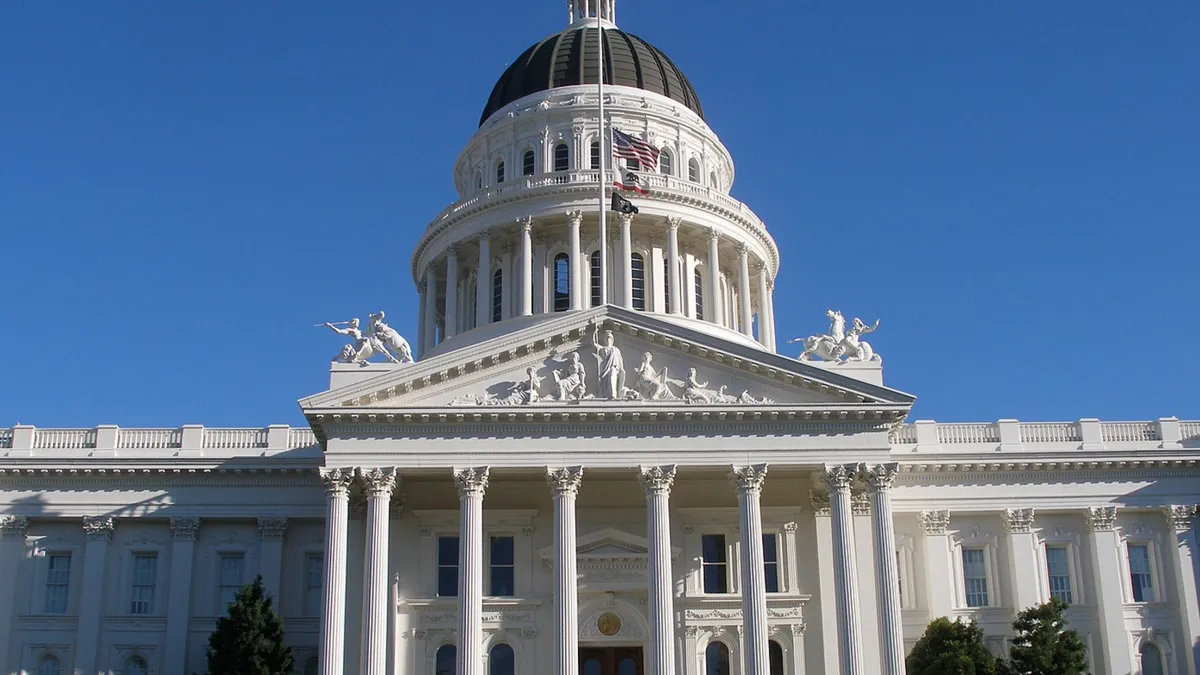Dive Brief:
-
The California Air Resources Board (CARB) has proposed a plan that would raise the bar on the state’s efforts to reduce greenhouse gas emissions.
-
CARB’s scoping plan calls for reducing GHGs 40% below 1990 levels by 2030, extending the state’s carbon dioxide cap and trade program to 2030, reducing GHGs from refineries by 20%, and acknowledges the need to reduce emissions in agriculture.
- CARB’s action comes amid court challenges to the cap-and-trade program from business groups who claim CARB does not have legal authority to conduct an auction. A state appeals court heard challenges on Tuesday.
Dive Insight:
California’s cap-and-trade program, which began in 2012, is the second largest in the world outside of Europe. But the program is under fire from the California Chamber of Commerce, which has filed suit arguing that the 2006 law that is the basis of the cap-and-trade program does not authorize the state to conduct an auction.
The Chamber and the Morning Star Packing Company, a tomato processing firm, say the auction is the equivalent of a tax increase that would require approval of two-thirds of the House and Senate under California law.
The case was rejected by a trial judge in 2013, but petitioners made their case to an appeals court on Jan. 24. Whatever the decision, the case is likely to end up in the state Supreme Court.
Meanwhile, the legal uncertainty has depressed carbon auction results, with prices hovering around the floor value of CO2 allowances.














